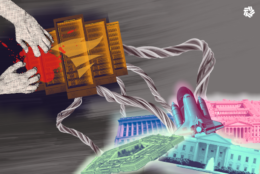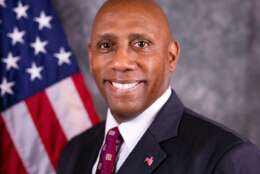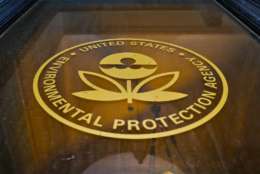Cybersecurity
-
In today's Federal Newscast, the Cybersecurity and Infrastructure Security Agency wants to make sure agencies don't let down their guard on Russian cyber threats.
May 10, 2021 -
The Cybersecurity Model Maturity Certification program has many moving parts, all aimed at making sure contractors can be trusted with controlled, unclassified information.
May 07, 2021 -
The Software Engineering Institute, operated by Carnegie Mellon University as a federally funded research and development center, has a new name at its CERT Division.
May 07, 2021 -
Even for the government, the Defense Department's Cybersecurity Maturity Model Certification program is a complicated apparatus.
May 07, 2021 -
In today's Federal Newscast, the largest federal employee union has some ideas of how to address the Defense Department's skill gaps.
May 07, 2021 -
The Federal Risk Authorization Management Program (FedRAMP) saw a huge increase in reuse of cloud security packages in fiscal 2020 and the program management office is taking steps to make it easier in 2021 and beyond.
May 06, 2021 -
In today's Federal Newscast, the Defense Department has expanded its program of using external hackers to probe systems for cybersecurity vulnerability.
May 06, 2021 -
The Department of Homeland Security is building momentum on its plans to get ahead of an escalating ransomware threat, and getting started on 60-day sprint focused on ramping up its cyber workforce to get ahead of these threats.
May 06, 2021 -
Alex Rice, the co-founder and chief technology officer at HackerOne, said over the last five years, DoD has identified more than 10,000 vulnerabilities through bug bounty and other similar programs.
May 05, 2021 -
Solving cybersecurity issues will take time and requires new levels of cooperation between the public and private sectors to defend against threats and work towards a solution.
May 04, 2021 -
John Peluso, chief product officer at AvePoint, joins host John Gilroy on this week's Federal Tech Talk to discuss experiences his company has had with several agencies when they wanted to make a transition to the Microsoft cloud.
April 30, 2021 -
The legislation would grant limited immunity to give companies an incentive to report, and require these disclosures to anonymize personally identifiable information. Warner said these disclosures would provide an “early warning system” across government and private-sector owners of critical infrastructure.
April 30, 2021 -
Several years ago, EPA CIO Vaughn Noga and his team established a set of “wildly important goals” which he said have strengthened since the pandemic.
April 28, 2021 -
Kevin Walsh, a director on the Government Accountability Office's IT and cybersecurity team, had the latest on GAO's High Risk List on Federal Drive with Tom Temin.
April 28, 2021 -
Isaac Kohen, the vice president of research and development at Teramind, offers advice about how to ensure agencies and their employees maintain cybersecurity whether at home or in the office.
April 27, 2021














